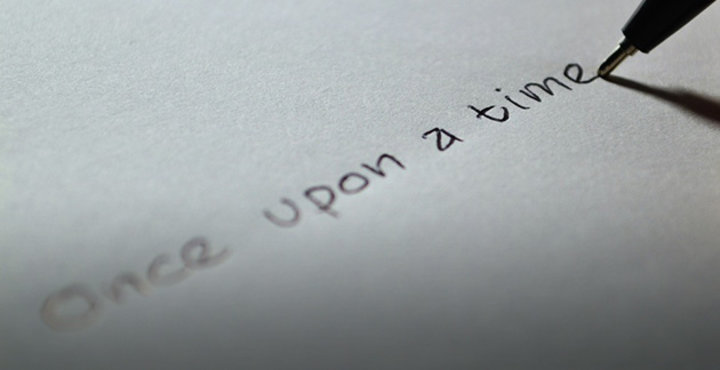Written by Joanna Kimmerly-Smith
Published authors have offered loads of advice to beginning writers—everything from going after inspiration "with a club" (Jack London) to simply eating chocolate biscuits (Neela Mann and Lliana Bird).
But what's great about growing as a writer is that the lessons you learn from writing can also be applied to your general life. Insights into the writer's craft can help us interpret and live in the real world.
By examining writing lessons from well-known authors, we can extrapolate advice about the importance of creativity, motivation, relationships, and personal and intellectual growth.
1. Learn through reading.
"If you don't have time to read, you don't have the time—or the tools—to write. Simple as that." — Stephen King
Many authors have agreed that, to become a great writer, you must read. Chris Bradford argues that reading is "vital to fill that well of creativity within you. Otherwise you'll simply run out of words and ideas."
There are, of course, practical reasons for this advice; following it can expand your vocabulary, spark your imagination, or teach you the mechanics of fiction writing. However, learning through reading is also relevant to daily life.
Although you can read for entertainment, you can also read to actively better yourself—to learn about new topics, exercise your imagination, or empathize with other people's experiences. Reading about the world acquaints you with knowledge and perspectives you might not have encountered otherwise. Whether or not you intend to write your own story, reading is an important tool for educating yourself and understanding more about the world.
2. Express yourself.
"Start telling the stories that only you can tell, because there'll always be better writers than you and there'll always be smarter writers than you. There will always be people who are much better at doing this or doing that—but you are the only you." ― Neil Gaiman
Another writing lesson that we can apply to daily life is the importance of expressing individuality. We each have our own unique story and set of perspectives. Yet we tend to fear being ourselves, so we try to copy the decisions, attitudes, or actions of others.
This is particularly true for writers who try to imitate the style of successful authors, only to discover that their writing is generic and soulless.
As Anne Rice argues, "The world is crying for new writing. It is crying for fresh and original voices and new characters and new stories. If you won't write the classics of tomorrow, well, we will not have any." The advice to "write your own story" can be taken literally, but it can also be taken as a metaphor for living your own life.
3. Allow yourself to make mistakes.
"Teach yourself by your own mistakes; people learn only by error." ― William Faulkner
If you're a perfectionist, this writing lesson probably sets your teeth on edge. But don't fool yourself; if you don't allow yourself to make mistakes, you'll never learn from them. This will rob you of personal growth.
Writers know what it's like to seek perfection, but they also know the importance of letting themselves fail occasionally. Since it's pretty much impossible to create something new without making mistakes, a little tolerance for error is not only permissible but also necessary. Author Joshua Wolf Shenk once said, "The old writer's rule applies: Have the courage to write badly." Why not have the courage to live imperfectly.
4. Be honest.
"…Write your story as it needs to be written. Write it honestly, and tell it as best you can." — Neil Gaiman
Whether in writing or in daily interactions, honesty is compelling. Beloved children's book author Madeleine L'Engle advises new authors to "keep an honest, unpublishable journal that nobody reads, nobody but you. [J]ust put down what you think about life, what you think about things, what you think is fair, and what you think is unfair."
Reflecting honestly about yourself and others helps authors to engage with ideas more deeply, which allows them to write compelling words that ring true.
Being honest is a challenge that everyone faces, but you can learn how to live more openly by writing in the same way.
5. Be open to—yet critical of—criticism.
"Advice to young writers? Always the same advice: learn to trust our own judgment, learn inner independence, learn to trust that time will sort the good from the bad―including your own bad." ― Doris Lessing
Criticism, like honesty, is often a bitter pill to swallow. For authors, negative feedback is a necessary evil. Roddy Doyle advises authors to be flexible enough to "change [their] mind[s]. Good ideas are often murdered by better ones." The willingness to receive criticism and let go of your original preconceptions can be both painful and rewarding.
The source from which you receive criticism is another issue. While Anne Rice asserts that "anybody can be a critic, [but] writers are priceless," Rose Tremain advises authors to "listen to the criticisms and preferences of [their] trusted 'first readers.'" By extension, we shouldn't listen to just anyone with a negative opinion, but we should heed the constructive criticism of trusted friends, family, and/or professionals.
Just as we need to make mistakes so we can learn from them, so too do we require constructive criticism to strengthen both our writing and our character.
6. Share your insights and skills with others to promote positive change.
"Becoming a writer is about becoming conscious. When you're conscious and writing from a place of insight and simplicity and real caring about the truth, you have the ability to throw the lights on for your reader[, decreasing] the terrible sense of isolation that we have all had too much of." ― Anne Lamott
This advice, in part, is an extension of the first writing lesson in this article: read and write to learn about others. We wouldn't have as much insight about others—their social, psychological, environmental, and economic conditions—if it were not for the courage of authors to represent these issues in published writing.
Andrew Solomon comments on the "moral purpose" of writing: "Remember that writing things down makes them real; that it is nearly impossible to hate anyone whose story you know." Sharing your own or another's point of view can help both you and your readers to identify with others.
If you don't consider yourself a talented writer, you might wonder how this writing lesson is relevant to daily life. Well, empathetic communication doesn't have to occur through words; you can open avenues of communication through social interactions, acts of kindness, or simply listening, which can promote positive change. It's important not only to listen to the unheard stories of others in society, but also to give them a voice.
7. Keep going, even when things get tough.
"Make yourself write regularly. It's like anything: The more you practise, the better you'll get." — Jennifer Gray
"I know it sounds obvious, but one of the best pieces of advice for a new author (or anyone pursuing anything new) is to try, try, and try again. Effort doesn't necessarily equate to innate skill, but you can't develop your skills without putting in a bit of grunt work. Madeleine L'Engle encourages authors to "write a little bit every day. Even if it's for only half an hour—write, write, write."
You can take this writing lesson to heart in any area of life. When you become discouraged with your progress in a new fitness routine, be persistent. When your fifteenth attempt at organic quinoa and ancient grain salad goes sour, tweak the recipe again. When you want to curl up into a ball and refuse any work that bears the slightest risk of failure, take a deep breath, and try it!
Sarah Waters describes how sticking with things can help authors—and the rest of us—overcome the overwhelming fear of failure: "Don't panic. Midway through writing a novel, I have regularly experienced moments of bowel-curdling terror… Working doggedly on through crises like these, however, has always got me there in the end." In short, the progress you'll make by doing what you can do will eventually help you do what you can't.
8. Love what you do. Be intrinsically motivated.
Write the book that you're desperate to read. Fall in love with your characters. Finish the day's writing at a point where you want to know what happens next. And keep writing every day." — Keren David
Benet Brandreth upholds that "You have to write because you love writing, not because of something external the writing might bring you. Most of what you write only you will ever see, and that needs to be enough or you will never do the work that's needed."
Isn't it true that most of the work we do goes unnoticed—that it takes years of hard work to become proficient at something? If you're not willing to go through the hard times, if you're not willing to fail, if you're not willing to work unless you receive external affirmation, you will likely miss the joys of self-sufficiency, growth, and fulfilling your potential.
Conclusion
Writers might seem like a special group of people with word-related superpowers, but underneath, we're just human. Whether you're a writer who practices your craft daily or struggles to put pen to paper, the preparation, perseverance, and fulfilment of the writing process can inform your character as well as your writing—and, occasionally, your actions and words will even hold the power to transform the lives of others.
Image source: Ben White/UnSplash.com
Perfect Your Writing with High-Quality Editing
Hire a Professional Editor, or Get a Free Sample
About the Author
Joanna's passion for English literature (proven by her M.A. thesis on Jane Austen) is matched by her passion to help others with their writing (shown by her role as an in-house editor with Scribendi). She enjoys lively discussions about plot, character, and nerdy TV shows with her husband, and she loves singing almost as much as she loves reading. Isn't music another language after all?





